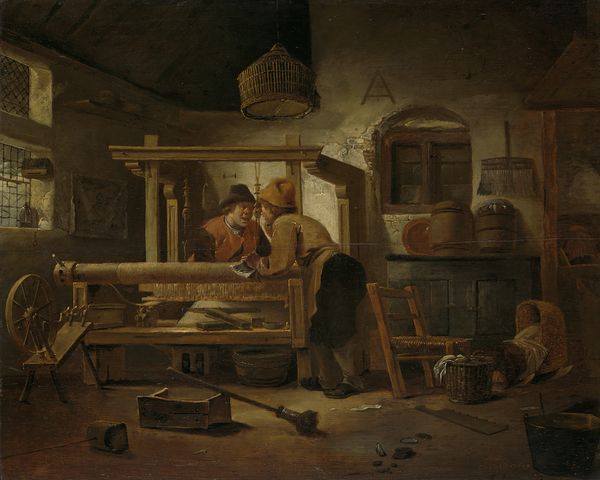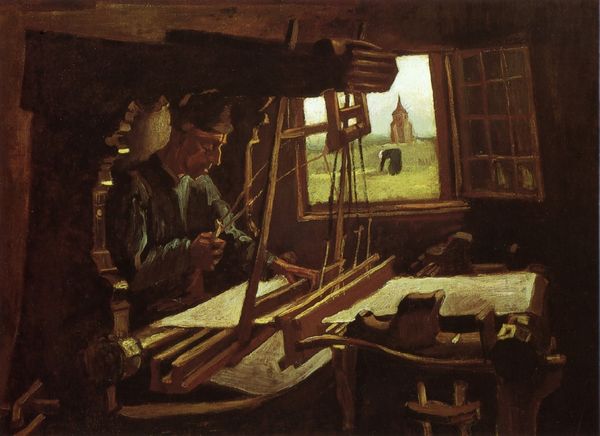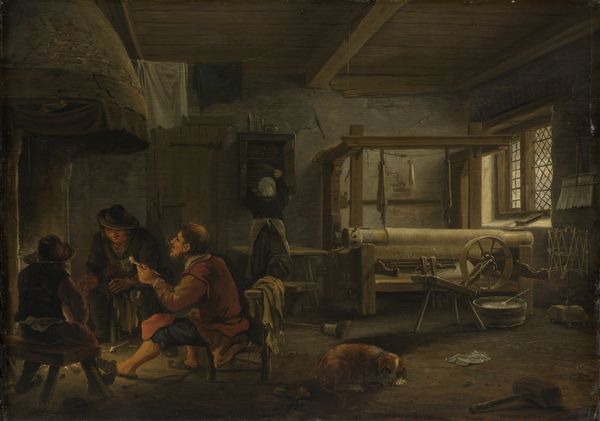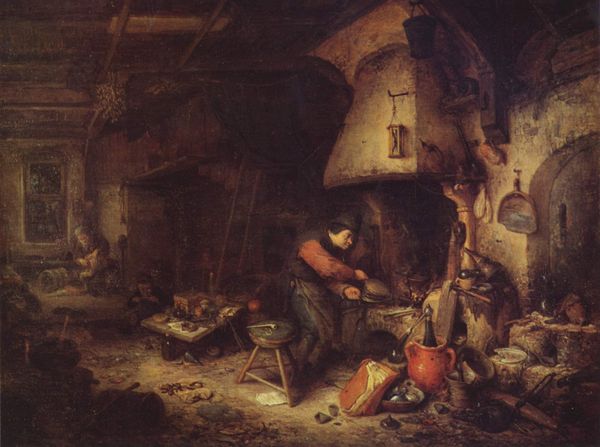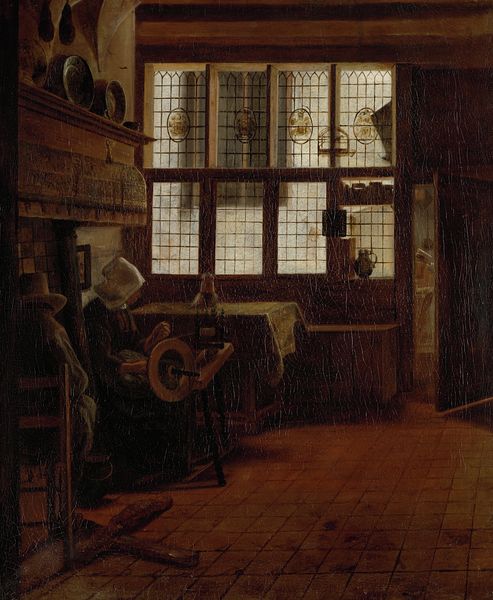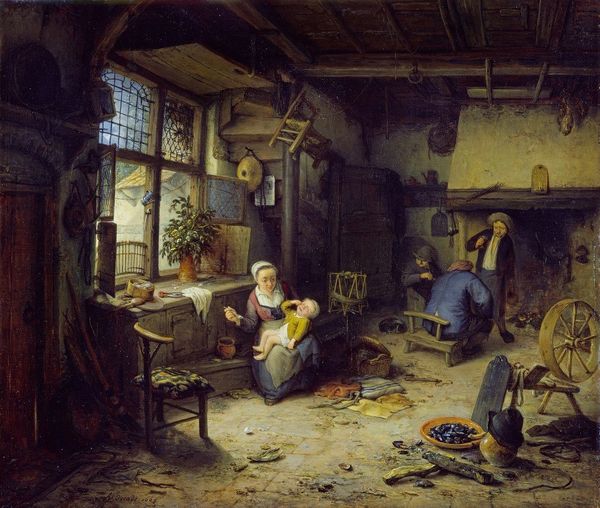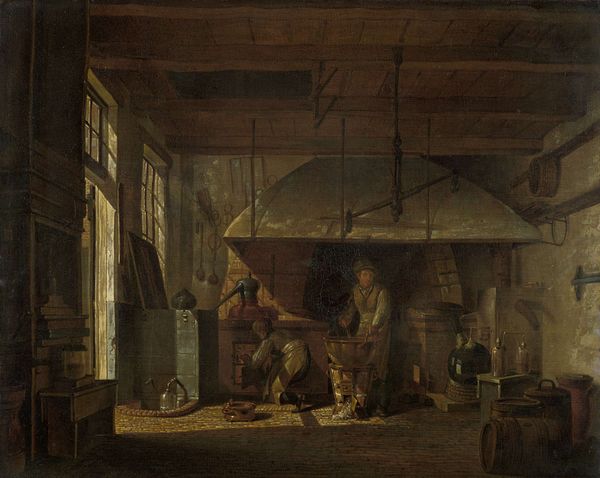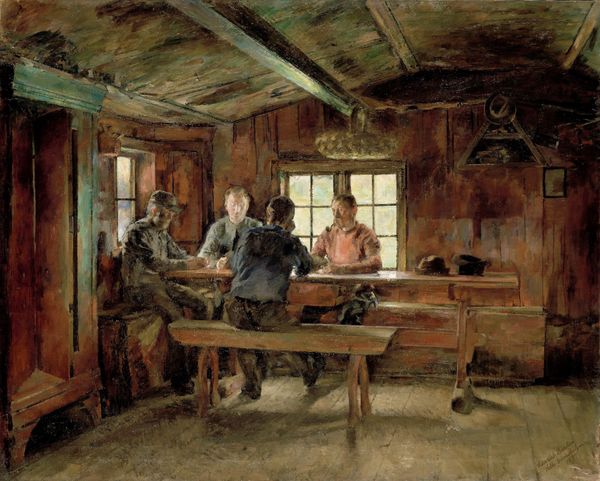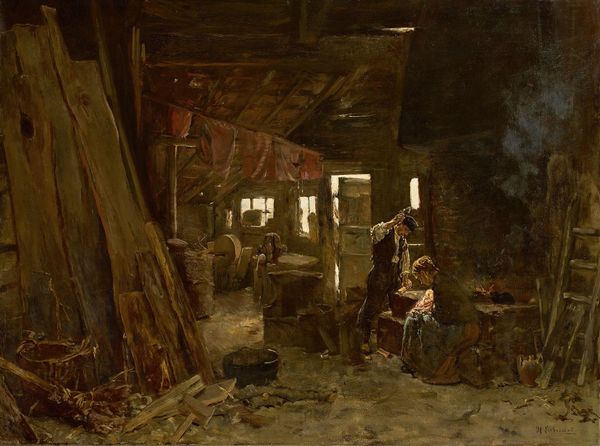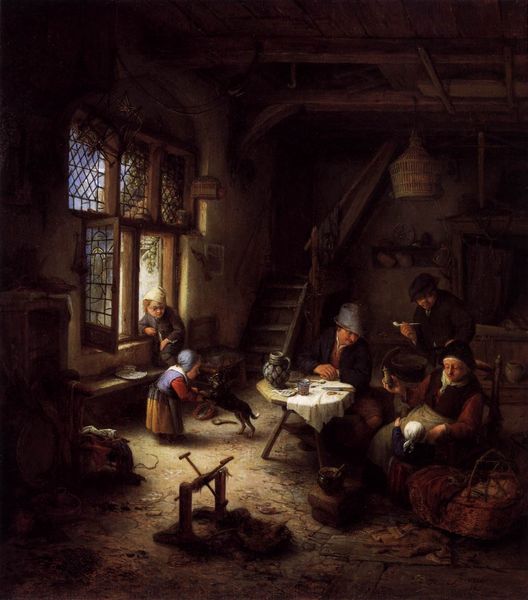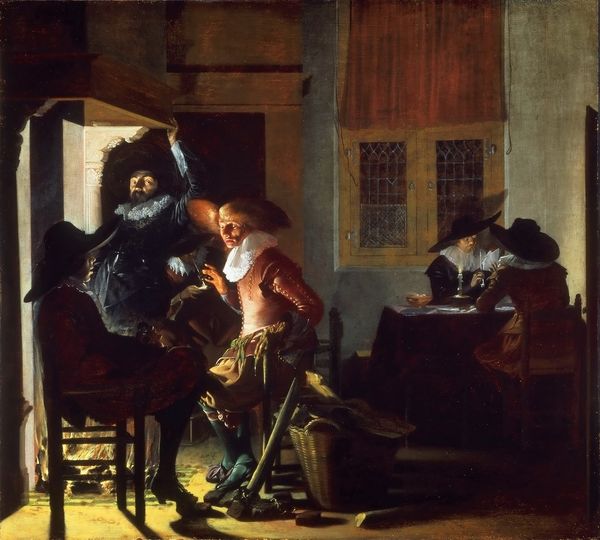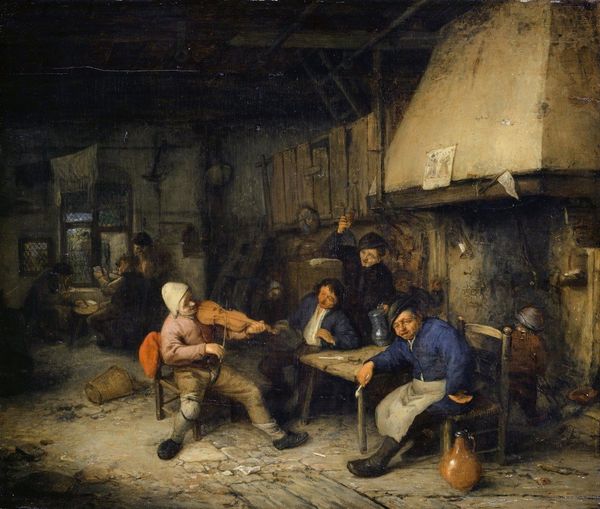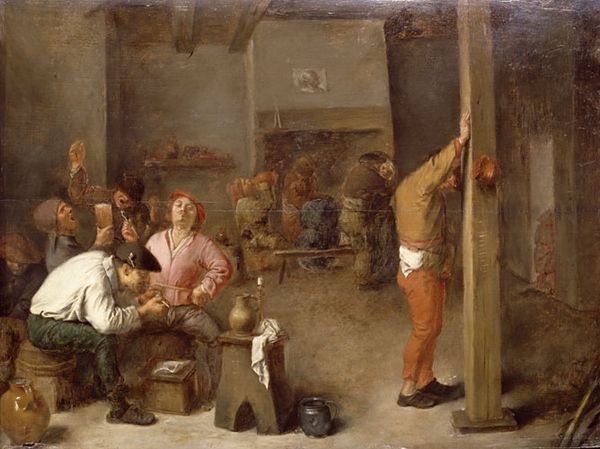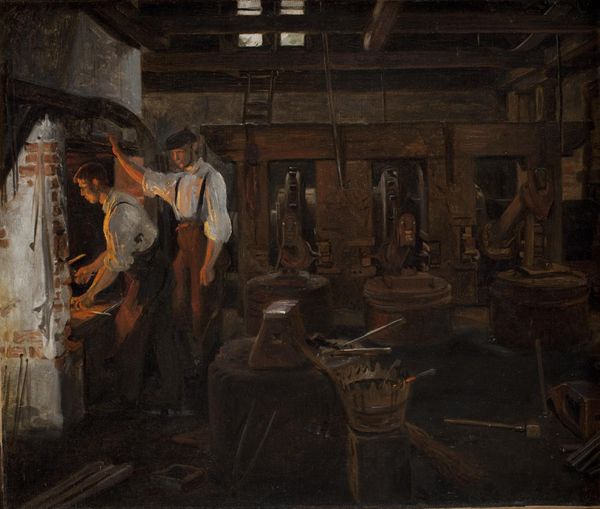
Dimensions: support: 470 x 688 mm
Copyright: CC-BY-NC-ND 4.0 DEED, Photo: Tate
Editor: Here we have John Hill’s "Interior of the Carpenter’s Shop at Forty Hill, Enfield," undated. It’s compelling, almost theatrical, in its contrast of light and dark. What do you see as the central concerns of this piece? Curator: It's interesting to consider Hill's choice to depict a workshop, focusing on the process of production. How does the representation of labor and materials challenge traditional notions of artistic subject matter? Editor: That's a good point. The emphasis on the craft itself elevates it. Curator: Exactly! And consider how the social context of labor is represented. What does the scene convey about the role of the carpenter within his community? Editor: I hadn't considered that, but now I see how it celebrates the everyday. Curator: And that celebration reframes our understanding of both art and labor. Editor: This has given me a new perspective on the painting. Thanks! Curator: My pleasure! It’s always rewarding to consider art through the lens of its creation.
Comments
tatebritain 9 months ago
⋮
http://www.tate.org.uk/art/artworks/hill-interior-of-the-carpenters-shop-at-forty-hill-enfield-t03668
Join the conversation
Join millions of artists and users on Artera today and experience the ultimate creative platform.
tatebritain 9 months ago
⋮
John Hill shows the interior of a small joinery shop that likely belonged to him and his father Thomas. Various tools and stages of production are visible: an axe and saw for cutting the wood in the foreground, and a planer for shaping it in the background. The unglazed window in the far corner of the workshop is large enough for big pieces of wood to pass through. It also provides ventilation and light for the ‘master’ carpenter. He is distinguished from his assistants by his moleskin hat and dark jacket. John likely included himself in the picture, possibly as this master carpenter (although this figure might also be his father). John later described himself as an ‘entirely self-taught' painter. He exhibited this painting at the Royal Academy in 1813. Such representations of craftsmen at work are rare in British art of this period. Gallery label, October 2023
